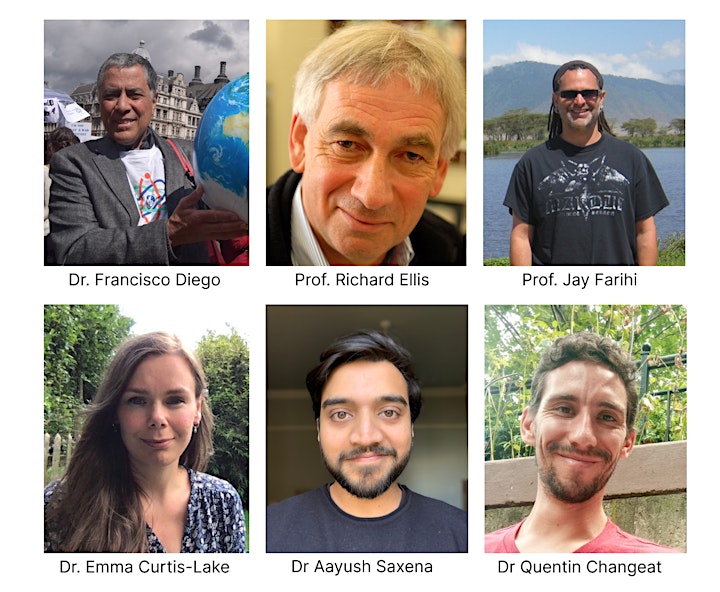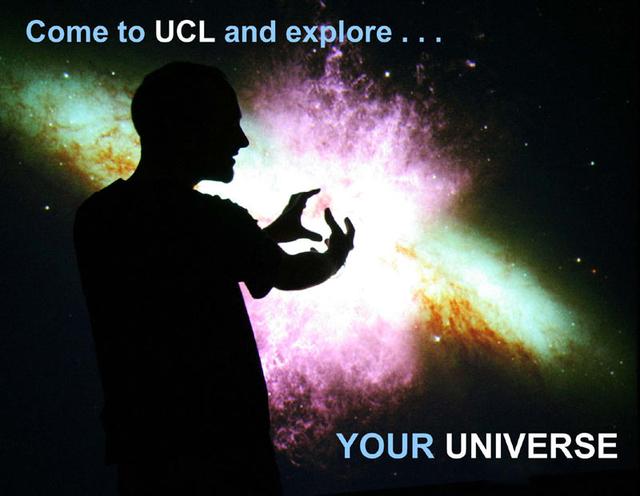The 17th edition of the festival ran from 22nd to 25th June 2022, returning to the UCL campus after the restrictions imposed by the COVID pandemic.
Events which took place in 2022:
The 17th edition of the Your Universe festival resumed the usual format of pre-booked school groups on the weekdays and families and general public on the Saturday afternoon, with a panel discussion on the Saturday evening.
There were about 10 different stations with the usual themes, to include stellar evolution, interactive HR diagram, cosmology, space-time continuum simulation, telescope optics, galaxy classification, solar observing on H alpha light (we even had good weather!) and more.
Further information can be read in this excerpt from the Department of Physics and Astronomy Annual Review 2021-22.
The James Webb Space Telescope marks the start of a new era in the discovery of the Universe
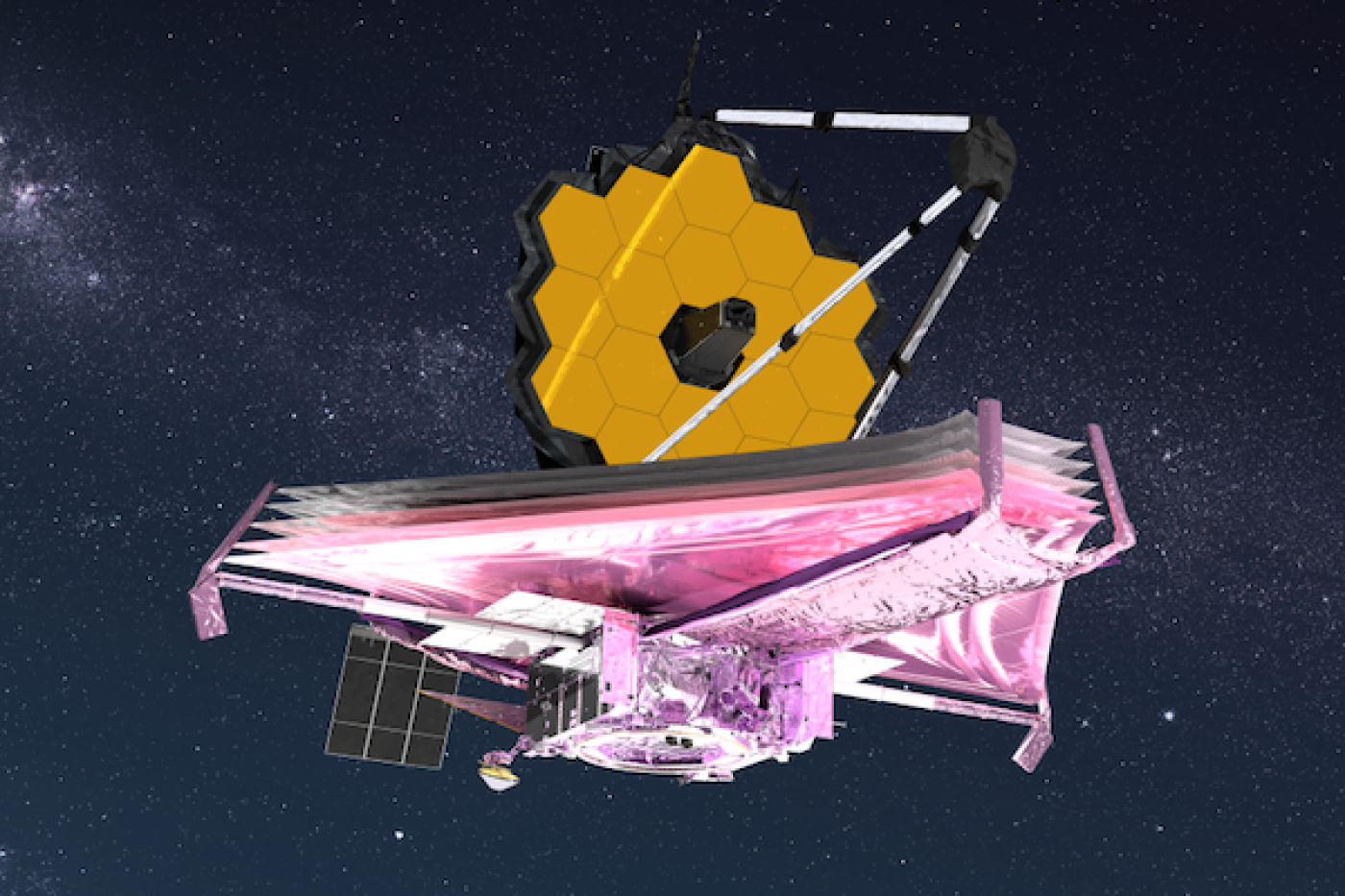
An artist's impression of the James Webb Space Telescope in operation. Credit: NASA GSFC/CIL/Adriana Manrique Gutierrez
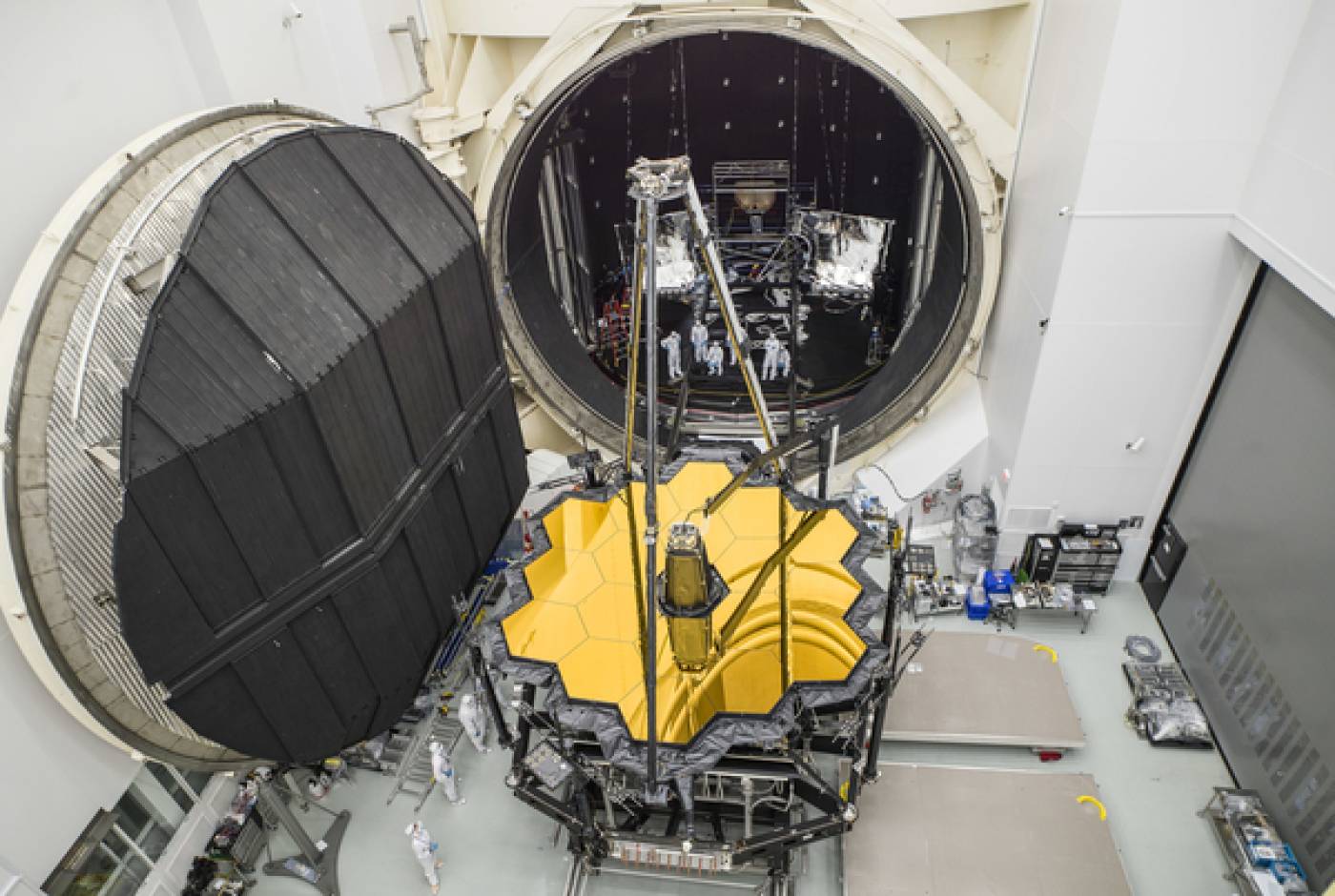
James Webb Space Telescope emerging from Chamber A. Credit: NASA/Chris Gunn
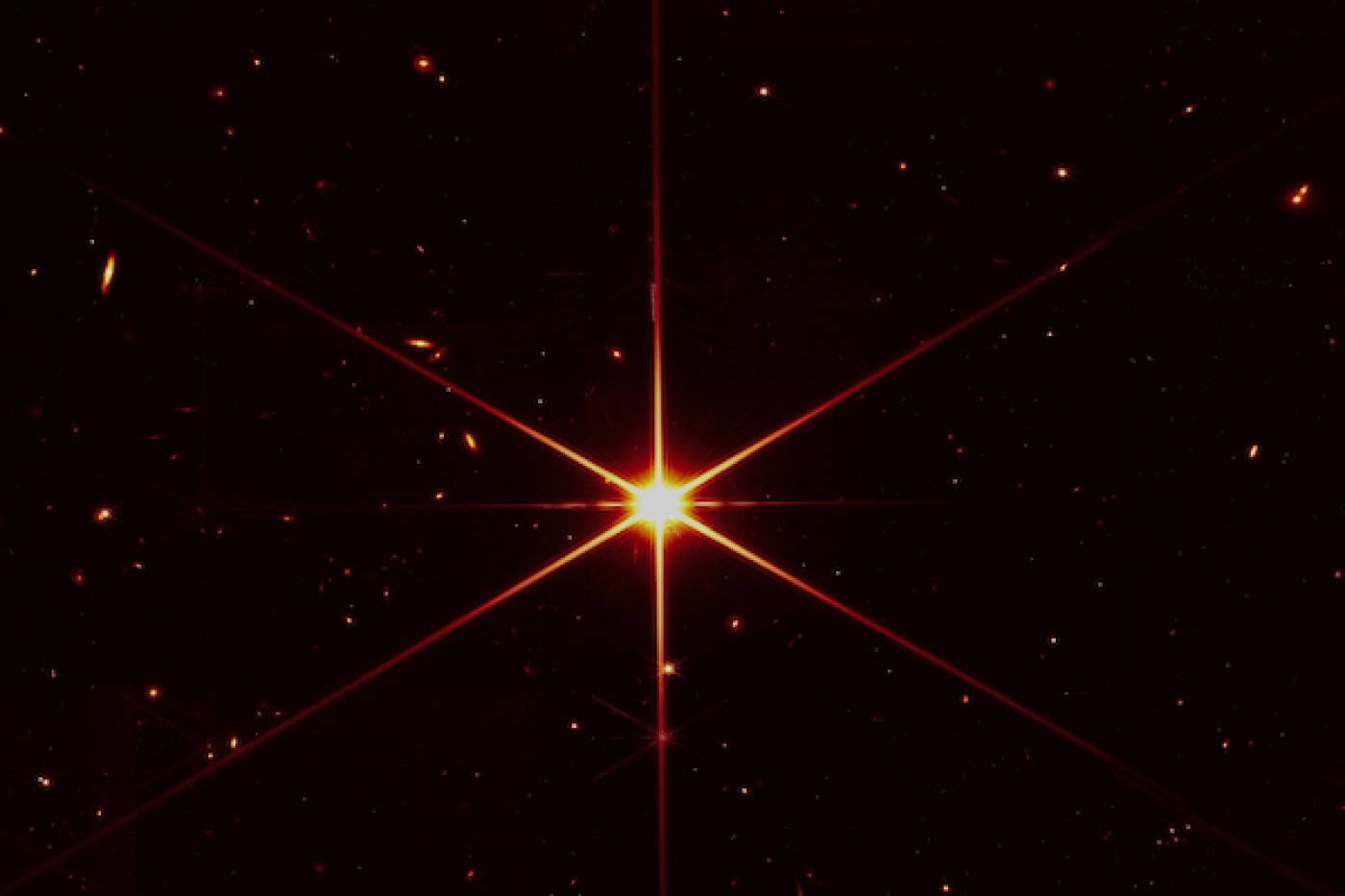
Webb reaches alignment milestone: image of focused star. Credit: NASA/STScI
This event was accessible to the general public and families.
The James Webb Space Telescope (JWST) is one of the most important scientific projects ever developed to explore the Universe as never before, from the formation of the very first stars and galaxies, to the birth of solar systems and the possibilities of alien life.
Our expert panelists gave a tour of this amazing project, its conception, design, contruction and testing. We went back to the dramatic events of the last Christmas day, when the JWST started its long journey and deployment.
Our panelists analysed the first test images received so far, and gave us an idea of the expected advances in their respective fields of research, as they finally get to use the telescope as soon as it is released to the international scientific community.
What was the origin of the very first stars and galaxies in the Universe? Which alien planets may have life? How likely is the JWST to get damaged by meteorites and radiation? When will we get the first scientific results? These and many more questions were part of the open discussion with the audience, who brought many relevant questions, especially the children!
(This event concluded the XVII edition of Your Universe, the UCL Festival of Astroromy)
Moderator: Dr Francisco Diego, UCL
Francisco got his PhD in astrophysics at UCL. For many years, his field of research was astronomical instrumentation. Currently he is a lecturer at UCL.
One of Francisco's main interests is school and public outreach. He is developing a major school’s project about the history of our environment, enhancing its unique cosmological relevance and fragility.
To celebrate the Year of Astronomy in 2009, Francisco founded, and is the director of, Your Universe, the UCL festival of Astronomy, now on its XVII edition. He has collaborated on science documentaries by the BBC, PBS, etc. and appears on live TV interviews on astronomy related events, including the JWST.
Richard Ellis is Professor of Astrophysics at UCL
After obtaining his PhD at Oxford University, Professor Ellis established a major astronomy group at Durham University and later became the Director of the Institute of Astronomy at Cambridge University. In 1999 he emigrated to the California Institute of Technology where he was Director of the Palomar Observatory.
Prof Ellis' research interests span the distribution of dark matter, the history of the cosmic expansion and studies of the first galaxies seen when the Universe was less than 5% of its present age. He is a Fellow of the Royal Society and the Australian Academy of Sciences.
Jay Farihi is Professor of Astrophysics at UCL
Professor Farihi is a former STFC Ernest Rutherford Fellow and previously, a Senior Research Fellow at the University of Cambridge. He did his doctoral research in California where he is a native, and post-doctoral work on the big island of Hawaii where he is a frequent visitor to the telescopes.
Prof Farihi played a key role in establishing the existence of planetary systems orbiting white dwarf stars, overturning the previous scientific paradigm. He has recently published a discovery of planetary material in the 'Goldilocks' (habitable) zone of one such star, and plans to use JWST to better understand its origins.
Dr Emma Curtis-Lake is an STFC Webb Fellow at the University of Hertfordshire
Dr Curtis-Lake is one of three Webb fellows. She is challenged to do science with Webb, while taking the public along for the journey. She studies galaxies in the early Universe and is part of a team that will have over 800 hours of Webb observing time within the first years of operations.
Dr Curtis-Lake is most excited by the spectroscopic capabilities of Webb, which will allow us to trace the processing of the building blocks left over from the Big Bang (Hydrogen and Helium) by early generations of stars to produce heavier chemical elements, essential to planet formation and ultimately, life. She’s held post-doctoral positions in Edinburgh, Paris and Cambridge.
Dr Aayush Saxena is a Postdoctoral Research Fellow in the First Light research group at UCL
After receiving his PhD from Leiden University in the Netherlands, Dr Saxena spent one year in Rome as a postdoctoral researcher. In 2020 he returned to UCL as a research fellow, currently working on observations of stars and supermassive black holes in very distant galaxies.
Dr Saxena is an associate member of the JWST Near Infrared Spectrograph (NIRSpec) Instrument Science Team and also a co-leader of an approved JWST Cycle 1 proposal to study distant galaxies that host active black holes. With JWST, he hopes to understand how the first stars and black holes formed in the Universe, how they evolved and what physical processes were responsible for regulating the evolution of galaxies in the early Universe.
Dr Quentin Changeat is a Postdoctoral researcher in Physics and Astronomy at UCL
During his PhD and postdoctoral research at UCL, Dr Changeat focused on understanding the atmosphere conditions of alien worlds. He used the data from observatories such as the Hubble and Spitzer space telescopes, to work on the atmospheric characterisation of many extra-solar planets (exoplanets), ranging from the temperate super-Earth type to the extremely-hot Jupiter type, uncovering new molecules and trends in those atmospheres.
Dr Changeat is also actively involved in ARIEL, a future mission of the European Space Agency, dedicated to study the atmospheres of exoplanets. In September 2022, he will join the European Space Agency (ESA) as a research fellow, where he will continue this work as a member of the ESA team at the Space Telescope Science Institute in the US, this time analysing the exciting data from the JWST.
 Close
Close


